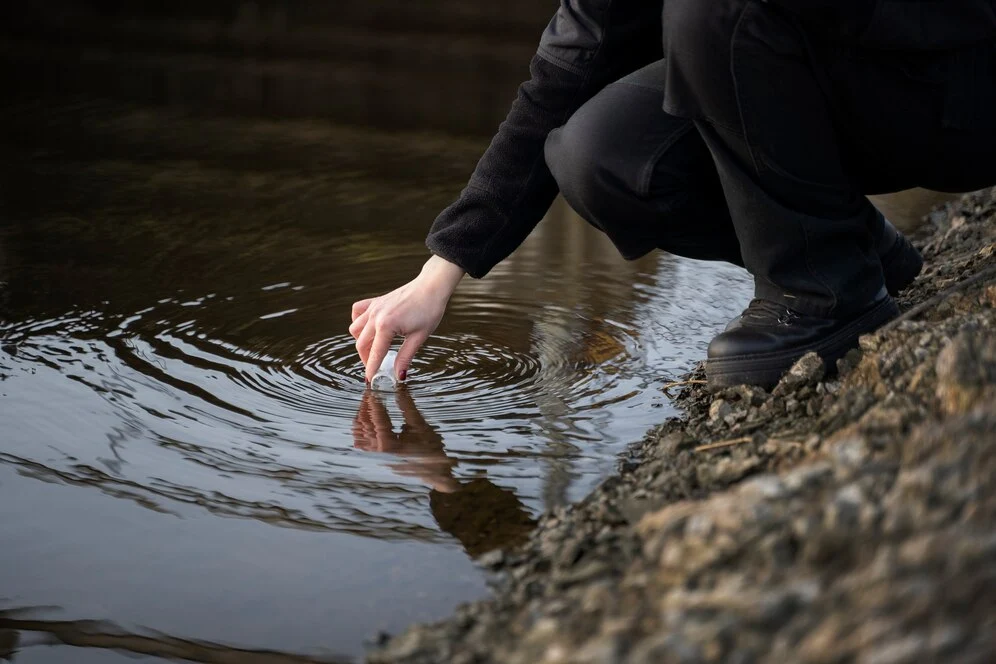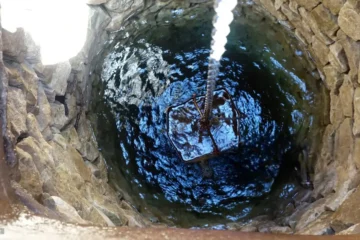Clean, safe water is something many of us take for granted until something goes wrong. If you rely on well water, you might assume it’s pure and healthy. But unlike municipal water systems, private wells aren’t routinely tested or treated by public health officials. Contamination can happen without warning, leading to serious health issues.
So, how do you know if your well water is making you sick? Here are the key warning signs to watch for and what to do about them.
1. Unexplained Gastrointestinal Problems
One of the most common signs of contaminated well water is frequent stomach issues, including:
- Nausea or vomiting
- Diarrhea
- Stomach cramps
- Bloating
Bacteria like E. coli or Salmonella, parasites like Giardia, or viruses can seep into well water through sewage leaks, animal waste, or surface runoff. If your family is experiencing repeated stomach bugs with no clear cause, your water could be the culprit.
2. Strange Taste, Odor, or Color
Healthy well water should be clear, odorless, and tasteless. If you notice any of these changes, it’s a red flag:
- Metallic taste – Could indicate high levels of iron, lead, or copper.
- Rotten egg smell – Often caused by hydrogen sulfide gas or sulfur bacteria.
- Chemical or gasoline-like taste – May signal industrial or agricultural runoff.
- Cloudy, brown, yellow, or greenish water – Could mean sediment, rust, tannins, or bacterial growth.
Never ignore odd smells or flavors—they could mean harmful contaminants are present.
3. Skin Irritations or Rashes
Contaminated water doesn’t just affect you when you drink it. Bathing or showering in polluted well water can cause:
- Dry, itchy skin
- Unexplained rashes
- Increased eczema flare-ups
High levels of minerals (like sulfur), bacteria, chlorine, or pesticides could be irritating your skin.
4. Frequent Fatigue, Headaches, or Other Unexplained Illnesses
Some contaminants, like nitrates (from fertilizers) or heavy metals (like lead), don’t always alter taste or appearance. Instead, they cause:
- Chronic fatigue
- Persistent headaches
- Dizziness
- Flu-like symptoms
Long-term exposure to these toxins can lead to more severe health problems, including neurological damage.
5. Plumbing Corrosion or Staining
Check your sinks, tubs, and toilets for:
- Blue-green stains (from copper pipes)
- Reddish-brown stains (from iron)
- Black slime (from manganese or bacteria)
If your fixtures are deteriorating faster than usual, your water might be corrosive—and unsafe to drink.
6. Presence of Algae or Biofilm
If you notice algae growth in your well or slimy deposits around faucets, it could indicate bacterial contamination. Some bacteria, like Legionella, thrive in stagnant water and can cause severe respiratory infections.
What Should You Do If You Suspect Contamination?
- Stop drinking the water – Switch to bottled water until you confirm it’s safe.
- Get a professional water test – Contact a certified lab to check for bacteria, heavy metals, nitrates, and other contaminants.
- Inspect your well – Look for cracks, nearby septic tanks, or agricultural runoff sources.
- Consider water treatment – Depending on the contaminant, options include:
- UV filters (for bacteria and viruses)
- Reverse osmosis (for heavy metals and chemicals)
- Activated carbon filters (for odors and organic compounds)
- Shock chlorinate your well (if bacterial contamination is found, but consult a professional first).
- Schedule regular maintenance – Wells should be tested at least once a year.
Final Thoughts
Your well water should protect your health not harm it. If you’re experiencing any of these symptoms, don’t ignore them. Testing and treating your water could be the key to feeling better and staying safe.
Stay vigilant, test regularly, and take action if something seems off. Your health and your family’s depends on it.
FAQs
How can I know if my well water is making me sick?
Unusual odors, tastes, discoloration, and health symptoms after consuming the water can be indicators of infected well water.
Is there a specific smell that indicates my well water is unsafe to drink?
Yes, a rotten egg, musty, or sewage-like smell indicates that well water is harmful.
Are changes in water pressure in my home connected to well water issues?
Yes, they indicate leaks, blockages, or contamination within the well system.
Could the health problems my family is experiencing be related to our well water?
Yes, unexplained health issues might be linked to contaminated well water.
Are there government resources or agencies that can assist with well water issues?
Yes, Local health departments and environmental agencies can offer guidance and resources.
How do I interpret the results of a well water test?
You should visit a certified professional, or a government health institute, that gives you proper suggestions.





